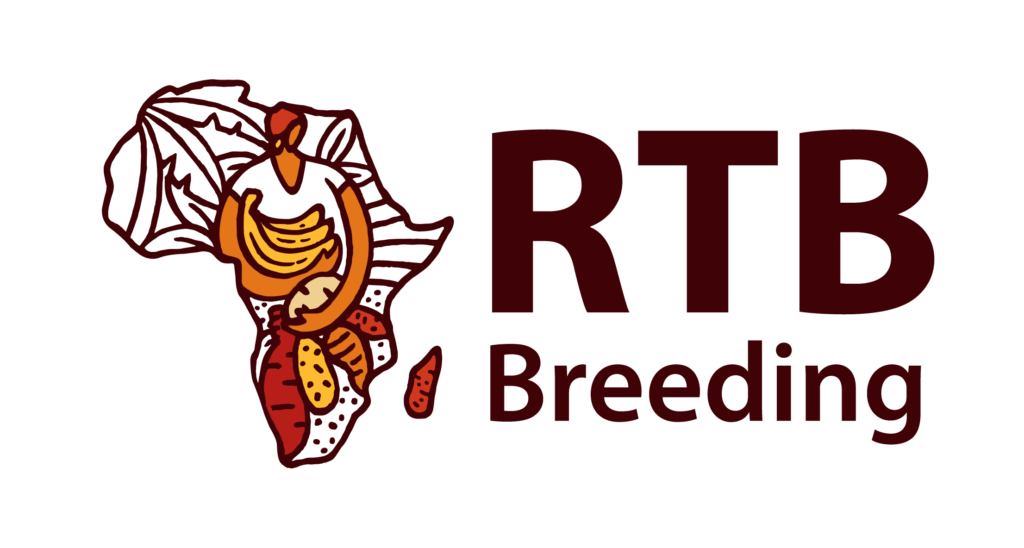Eighteen National Agricultural Research and Extension Systems (NARES) and Universities Join Forces with CGIAR Centers to Drive Breeding Innovations for Key Staple Crops
Nairobi, Kenya– October 13, 2024 – To enhance food security and improve the livelihoods of smallholder farmers across Sub-Saharan Africa, the Root, Tuber, and Banana (RTB) Breeding Network has officially been established, bringing together 18 National Agricultural Research and Extension Systems (NARES) and Universities, and two CGIAR Centers—the International Potato Center (CIP) and the International Institute of Tropical Agriculture (IITA). RTB Breeding, supported by the Bill & Melinda Gates Foundation, aims to significantly accelerate genetic gains in key staple crops, including banana, cassava, potato, sweetpotato, and yam.
The RTB Breeding Network is endorsed by senior leadership of organizations involved and is a critical component of efforts to deliver new, climate-resilient crop varieties to smallholder farmers faster. Its formal establishment, driven by the TRANSFORM Work Package of CGIAR Accelerated Breeding Initiative, marks a crucial milestone in regional collaboration, allowing participating NARES and Universities to leverage their collective expertise and resources to ensure the sustainable development of these vital crops.
Accelerating Genetic Gains and Empowering NARES
CGIAR and NARES are pooling their efforts, and in doing so, create powerful synergies to address food security challenges and build resilient regional agricultural systems through the RTB Breeding Network. By consolidating resources, adopting common breeding standards, and sharing data and genetic materials, the network aims to deliver new and improved crop varieties that meet smallholder farmers‘ and market segments‘ unique needs.
“This network represents a giant step forward in ensuring regional RTB breeding networks operate with a common vision of success,” Dr. Michael Quinn, Accelerated Breeding Initiative Lead. “By working together, sharing available resources, pooling efforts and assigning roles based on comparative advantage, we can deliver greater impact and ensure that the outputs of both NARES and CGIAR efforts across the region are equitably accessible to all members, rapidly benefiting smallholder farmers.”
The formalization of the RTB Breeding Network has established two subregional networks—West & Central Africa and Eastern & Southern Africa. This structure ensures that the unique agricultural needs of each region are addressed. At the same time, regional steering committees, comprising most NARES representatives, will guide the network’s governance and strategic direction. CIP and IITA will play facilitation roles, supporting the NARES in their leadership and breeding efforts.
“Some RTB crops have West and Central Africa as the center of origin, and the introduced ones have been with us for several centuries. Prof. Marian D. Quain, Deputy Director General, Council for Scientific and Industrial Research, Ghana. “They are our cultural heritage, and we are the custodians of these crops. A Regional Breeding Network initiative is long overdue since the system will harness the impact of breeding research activities holistically to improve, conserve and disseminate resilient smart tools towards food and nutritional security in the Sub-Region.”
Commitment to Sustainable Agriculture
The network’s activities align with a broader vision to foster climate resilience, alleviate poverty, and ensure food security by delivering improved crop varieties better suited to changing climate conditions and the needs of smallholder farmers. RTB crops are expected to expand significantly, with production forecasts indicating that they will surpass the combined output and value of other staple crops in Sub-Saharan Africa by 2050.
By working together, members of the RTB Breeding Network will continue to build on the strengths of each organization, increase their sustainability, create economies of scale and drive the adoption of innovative breeding technologies. In doing so, the network is poised to transform agricultural outcomes for millions of smallholder farmers in the region.
About the RTB Breeding Network:
The RTB Breeding Network is a collaborative effort between CGIAR centers, CIP and IITA, 18 National Agricultural Research Systems (NARES), and Universities across Sub-Saharan Africa. The network focuses on breeding key staple crops, including banana, cassava, potato, sweet potato, and yam, to accelerate the delivery of genetic gains on farms that improve smallholder farmers’ resilience, productivity, and livelihoods.
About CGIAR:
CGIAR is a global research partnership for a food-secure future, dedicated to transforming food, land, and water systems in a climate crisis. Its science is carried out by 13 CGIAR centers in close collaboration with hundreds of partners, including national and regional research institutes, civil society organizations, academia, and the private sector.
